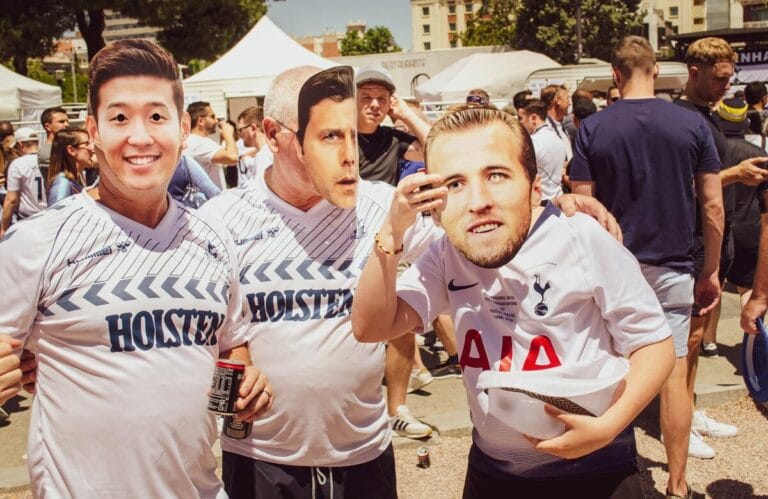The rich are once again stealing from the working class: this time, it’s football

“Football is a cultural ritual for the working class,” Jake Campbell, a Newcastle United fan, explains. “The game was born out of industrial towns and factory workers creating teams among themselves in the 19th century. The roots of the game are embedded in working class culture. It is what we look forward to at the end of the week.”
From roaring stadiums to communities in the local boozers of post-industrial towns—football has been the bedrock of British working class culture for generations. Now, like many things, the sport is being hijacked by the upper class—multimillionaire club owners and executives reside far from where the sport began. Despite backlash from football enthusiasts across the globe, the recently announced European Super League could destroy the sport as we know it—along with its working class spirit.
What is the European Super League?
Sunday 18 April saw the announcement of a new league, which has shaken the sport, the industry and its fans to the core. The league will essentially comprise 20 elitist clubs across Europe, including six from England: Chelsea, Arsenal, Manchester United, Manchester City and Tottenham Hotspurs.
If the plans go ahead, give a kiss goodbye to the beloved underdog club taking home the trophy. The formation of the new competition will mean that elite clubs will not be subjected to relegation or promotion—essentially putting an end to the nail-biting competition that the sport is known for.
The proposals have received widespread criticism: from domestic leagues to football federations, UEFA to supporters across the globe. Even Boris Johnson voiced his concern in an interview wearing a ridiculously oversized high-vis and hard hat only just clasping onto his head—I guess to give the illusion he’s a ‘normal’ working person.
Ironically, this is the same Boris Johnson who said inequality is “essential” to the human order, leading a society riddled with inequality—destroying working class communities through gentrification, breaking record numbers of food-banks and showing a complete disregard for those on Universal Credit.
So why are football tycoons so adamant for this new league to go ahead?
The answer is money. Or to put it more bluntly; greed. The proposed plans have landed the founding clubs a promised grant of £3 billion by the investment bank JP Morgan. A main figure behind the proposed plan, Real Madrid’s president Florentino Perez, claims it will “save football” at a time when young people are “no longer interested” in the sport due to “a lot of poor quality games.” It has nothing to do with adding to his $2.3 billion net worth.
It’s also worth noting that a number of clubs are in considerable debt, which has only been exacerbated by the COVID-19 pandemic. However, is sacrificing a sport formed and facilitated by working class cultural tradition the price we have to pay? According to out-of-touch billionaires, the answer is yes.
The announcement of the new league is the tipping point of a feeling that’s been brewing for years. Football club owners don’t care about their fans or the communities that have supported their clubs’ growth for generations. Or at least, they don’t care about those two as much as they do for big bucks. After more than a year of empty stadiums, owners have now realised they can exist on TV income alone.
Liverpool board the team coach to tunes of ‘Money Money Money’ by ABBA, played on a trombone...
— Sam (@smisles98) April 19, 2021
Only in Leeds... #LUFC #LFC #AntiSuperLeague #MoneyMoneyMoney pic.twitter.com/2R1MZFX6kG
“No matter how much noise fans make, I doubt they will listen—they stopped caring about the working man long ago,” Campbell argues. “For years they have priced the average fan out of football and this is just the next step. All they care about is lining their own pockets.”
“This is a case of the rich stealing from the poor. It destroys what football was built on: genuine competition. How can the average fan be expected to travel across Europe midweek to watch their team play? The rich always aspire to be richer and that almost always comes at the expense of the poor,” he added.
Jess Cumpson, involved with the football media company GallowgateShots, hopes that the “coming together of so many fans, players and managers from different clubs will mean something.” However, she raises concern that “money talks and ignorance will win.” She continues, “it will completely destroy the game we love: it’s devaluating the history of the beautiful game whilst disregarding its future.”
Connall Pugh highlights how the sport, already riddled with corruption, could be heading for a darker future. Global banks, like JP Morgan, “are the ones bankrolling the league, consisting of the wealthiest clubs in the world. It is the perfect playground for all things shady—money laundering and tax avoidance to name a few.”
“It hurts. It feels like a big part of me has died,” Owen Prescott, a passionate Liverpool fan added. “The lack of promotion and relegation speaks volumes as to the intentions of the league. Football has been the only constant in a lot of people’s lives, including my own, and it is being taken from us. Decades of support, centuries of history, is being thrown to the wayside so that a few rich arseholes can get a bit richer. It’s genuinely sickening.”
As of now, it’s unclear whether those at the heart of the controversy will listen to the voices of fans. What’s more clear is that those across the industry, from executives to fans, are unanimously pissed off. This is yet another example of the rich and privileged exercising their power over the working class—stripping them of their culture and identity for a quick buck.





